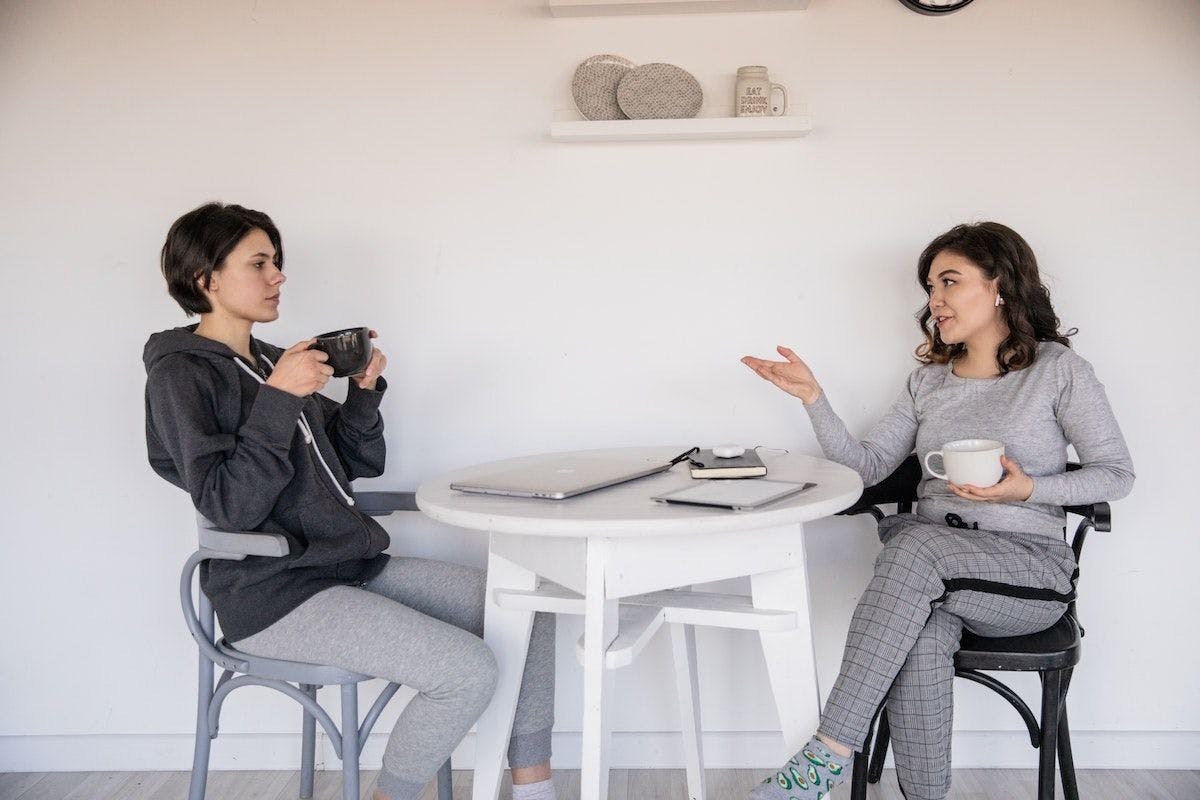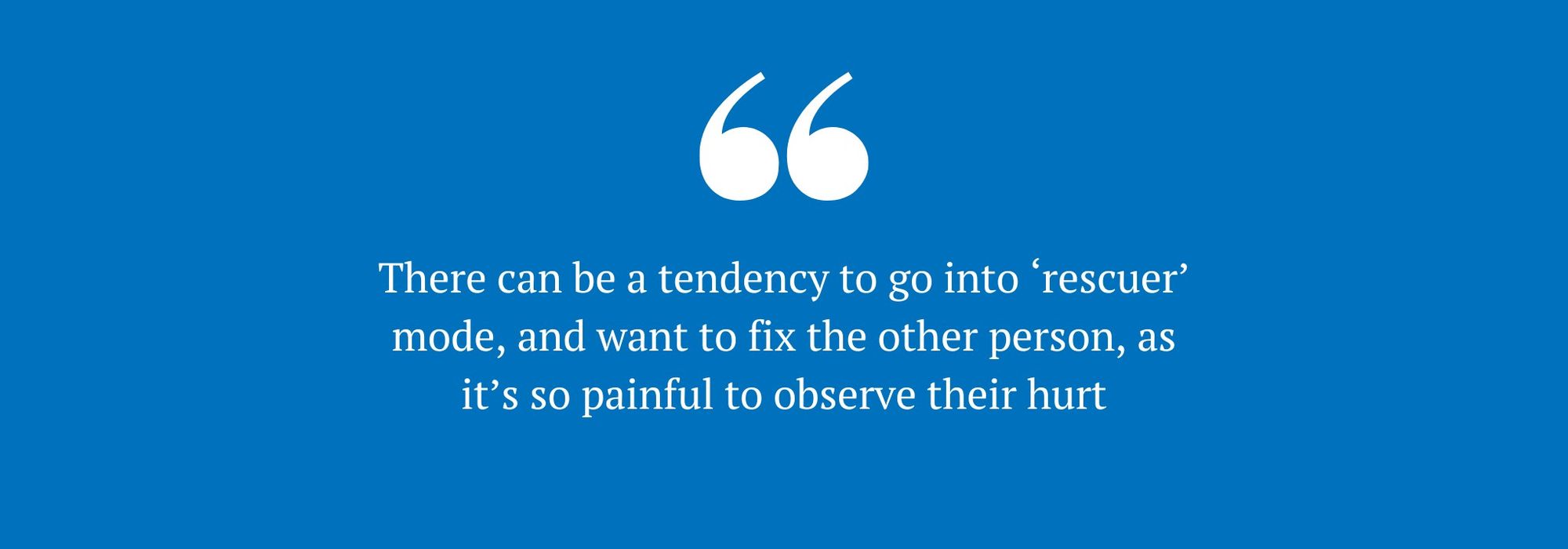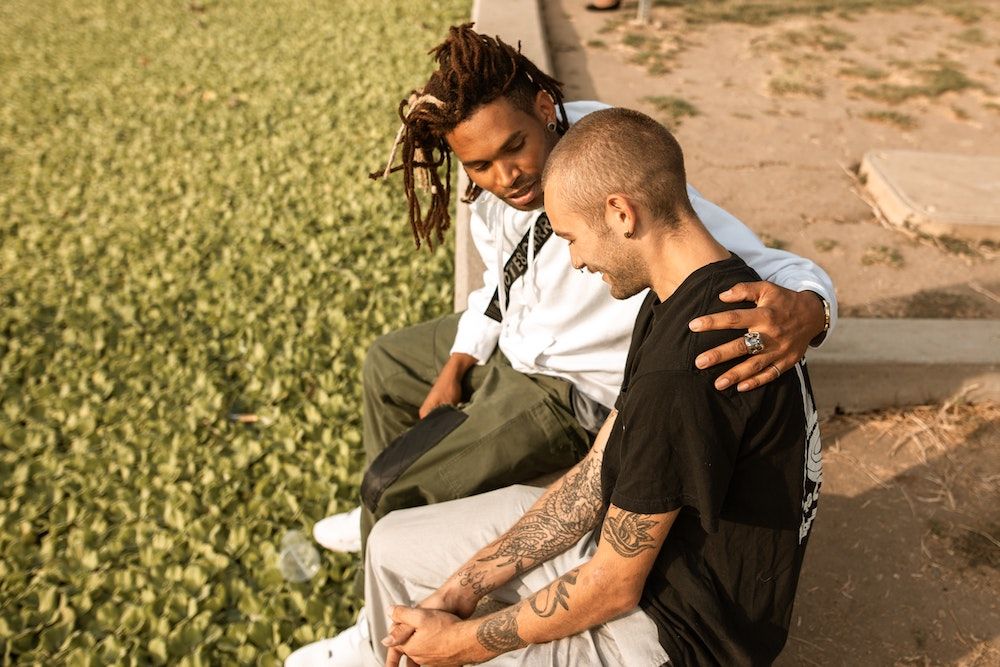A balanced guide on how to give (and not give) advice...
updated on Jul 14, 2023

Why sharing your opinion or guidance isn’t always the kindest thing you can do
When a friend or family member is struggling, what could be kinder than offering advice? Maybe you’ve been in a similar situation and have words of wisdom, or, as a less emotionally involved onlooker, you think you can see the solution more clearly.
However, have you ever been on the receiving end of unsolicited advice? Did you bristle with annoyance when a friend gave you guidance that just didn’t resonate?
When advice misses the mark it can leave us feeling unseen. For example, for someone struggling to get out of bed due to depression, the suggestion, “Have you tried going for a walk?’’ might feel insensitive, lacking insight into the severity of the situation. For someone whose partner has just left them, telling them “Have you tried journaling your feelings?’’ might leave them feeling shamed, as if they should be expressing their feelings privately rather than in conversation. Well-meaning suggestions can sometimes land awkwardly, leaving someone feeling worse.
There are times when what we really need is simply to be listened to. In the midst of emotional upset, it can be hard to think clearly. The part of the brain responsible for rational, logical thinking doesn’t function well when we are clouded by emotions. Advice might be hard to absorb or consider when feeling upset.
Mel Riley is a psychotherapist who is passionate about the need to be with people where they are at, rather than trying to dole out quick-fix solutions. She says, “When people are struggling, before we can give any advice, they want to be heard. They need acceptance and understanding of just how devastating their situation is. It can be soothing for another person to name what’s going on, to notice how excruciatingly painful it is.’’

This is not something that we are taught to do. Most of us didn’t have models growing up of what it looks like to truly be present with another person’s emotions. It can trigger our own unheard feelings from times we weren’t listened to. There can be a tendency to go into ‘rescuer’ mode, and want to fix the other person, as it’s so painful to observe their hurt.
Mel says, “We give advice because we need to feel helpful. If it’s someone we care about, it can feel unbearable to see them in distress and be unable to help them. Giving advice makes us feel better, but often not the person we are giving the advice to.’’
It might not feel like much to simply sit there and be with their pain, but this is often what people need more than a list of solutions. It provides a sense of safety, so a person can calm down, their nervous system can settle, and they can begin to think more clearly. When this happens, they might ask for suggestions, or be able to figure things out for themselves.
Mel stresses that there are times when it is important to receive advice from qualified experts. “There are too many armchair experts out there,” she explains. “Therapists are trained in neuroscience, but it isn’t just knowledge that’s important, but self-awareness. They need to know when they are going into ‘rescuer mode’, and back off if a suggestion isn’t received well.”
Mel sees this process as offering a menu. For example, she says, “I could tell you I think yoga would be good for you, but you might actually hate yoga. I need to go bigger; I could suggest movement would be good for you. I would ask, what kind of movement would be a good fit? I’m fishing all the time. I’m offering options, pick this or pick that. Once we’ve got movement, I can ask questions. What kind of movement? Do you want to move alone, with others online, or in an in-person group?’’
This approach of offering and listening acknowledges that we might not know what is right for another. It opens up the conversation for them to think for themselves with support. Communicating like this allows us to learn more about the other person, with gentle suggestions, rather than assuming we know better than them what they need.

Mel looks for signs in someone’s body language that suggestions hit the spot. “When the advice is right, people come alive. They look excited, they look interested, they are soothed.” Mel explains this is not exactly advice, but ‘hitting spots’. The question of whether to exercise in-person or alone might, for example, bring someone to the realisation that they are lonely. It is a journey of self-discovery, where the client feels empowered and heard.
If you’re noticing yourself giving a lot of advice, it can be helpful to reflect on what’s going on for you. Is it painful to observe a loved one’s struggles? Does the situation trigger something from your past? The desperate need to ‘fix’ another person can be an indication that our own emotions need a little attention. Having space to vent with a therapist or journal can help. It’s not easy being a listening ear for others, and it can be frustrating when they are deep in pain and don’t feel ready to explore solutions.
One activity that can bring awareness to our tendency to give advice, is to keep a journal for a week and notice the times you receive advice, or the times you feel tempted to give advice. Notice if some people give more advice than others. Notice if there are people you hold stuff back with if you don’t want to receive advice. Notice how it feels to receive. Notice what you’re feeling when you’re tempted to give advice.
This process can be an eye-opening way to not only help our friends more effectively, but also come to a deeper understanding of our own inner life. With a greater understanding of ourselves, and listening to others, our relationships can flourish.

